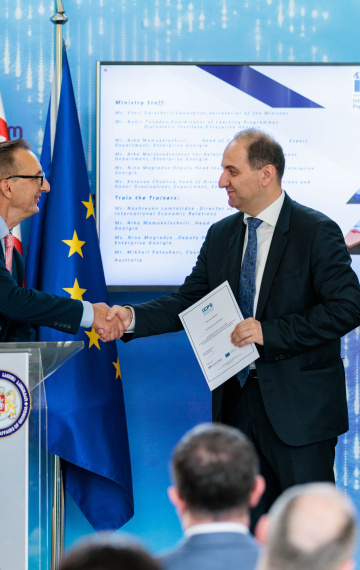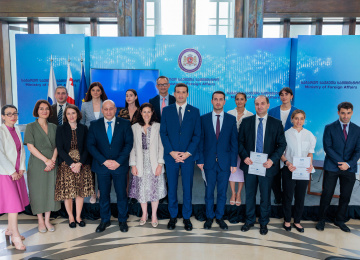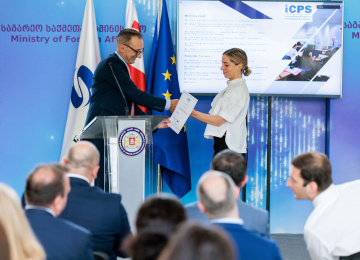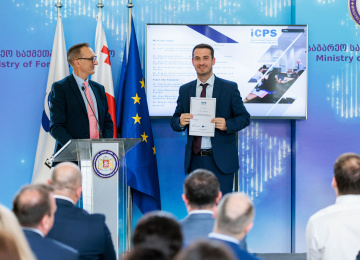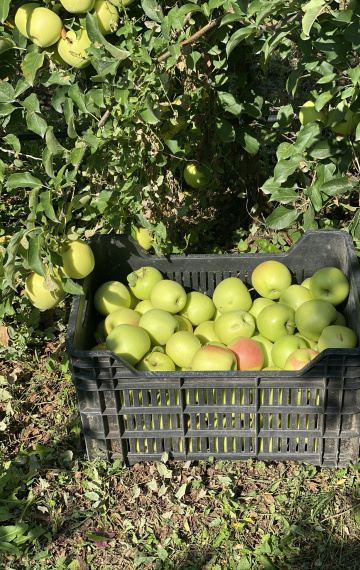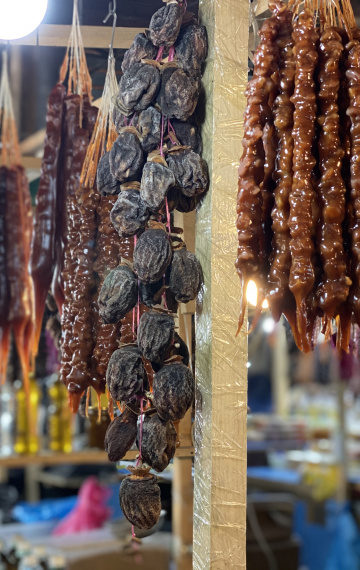Great things can be achieved by working together. That’s how Mariam Orjonikidze, a Georgian diplomat posted in the Czech Republic, views a series of training sessions on economic diplomacy supported by the EU4Business initiative and implemented by the EBRD.
An essential element in international relations, economic diplomacy helps countries to reap the rewards of trade relations and is a tool for promoting exports and attracting investors. It is particularly important in times such as these, where the world economy is facing new challenges from major shifts in supply chains and investment trends.
On the initiative of Enterprise Georgia and in close cooperation with Georgia’s Ministry of Foreign Affairs, the EU and the EBRD gathered together more than 80 Georgian Foreign Service representatives to discuss tools and ideas for better connecting local companies with international buyers.
Delivered by the International Centre for Parliamentary Studies, these training courses have been particularly beneficial to Georgia. The country has a population of close to 3.7 million people, with no designated economic offices abroad. Economic diplomacy is incorporated into the general functions of its embassies.
The view from Prague
According to Ms Orjonikidze, the interactive training sessions were comprehensive and interesting, based on case studies. She already plans to incorporate her new-found knowledge into her everyday tasks.
“One of the key takeaways was how to make good use of all the resources available to our embassy: working more closely with the Czech-Georgian chamber of commerce, for example, increasing our networks, cooperating with partners outside Prague to boost our reach in other equally important regions of the Czech Republic – this all is very important for small embassies like ours,” she says.
She also outlines some ideas with great potential. “The most popular and imported products from Georgia are nuts and fruits – something that people are usually surprised to learn.”
“There is growing interest in tourism in Georgia,” she continues. “Czech people love high mountains, hiking, heli-skiing and nature. Unfortunately, Covid-19 made it difficult to encourage tourism, but this is something we are actively promoting now.”
The view from London
Giorgi Saganelidze works in Georgia’s embassy to the United Kingdom of Great Britain and Northern Ireland. He sees economic diplomacy as fundamental to the long-term sustainable development of his country.
“The key aim is to build the capacity of local Georgian businesses, minimise barriers to trade and boost competitiveness in the private sector,” he says. “Attracting foreign investors, strengthening trade connections, supporting investors, promoting tourism is at the heart of our economic diplomacy endeavours.”
Giorgi believes that Georgia has much to offer internationally, for example, in agricultural products such as nuts, blueberries and almonds … and, of course, wine.
”Every year, more vines are planted in Georgia, more brands and wine companies pop up and stringent quality standards are introduced,” he says. “For instance, 736,000 of bottles were exported to Great Britain in 2021 alone ‒ that’s 70 per cent more than the previous year. This market is really important to Georgian wine-makers.”
Economic diplomacy is just one part of an interconnected cycle of promoting trade relations and supporting Georgia’s economic development, from enhancing production to knowledge-based marketing, from boosting standards to strengthening the country’s brand. The EU through the EBRD has been helping Georgian products and services to go global.
More than 180 companies have already benefitted from access to finance through the EU4Business-EBRD credit line to invest in modern technology, boost production locally and perform more efficiently internationally. Local entrepreneurs received the necessary know-how to grow their businesses facilitated by the EU4Business.

